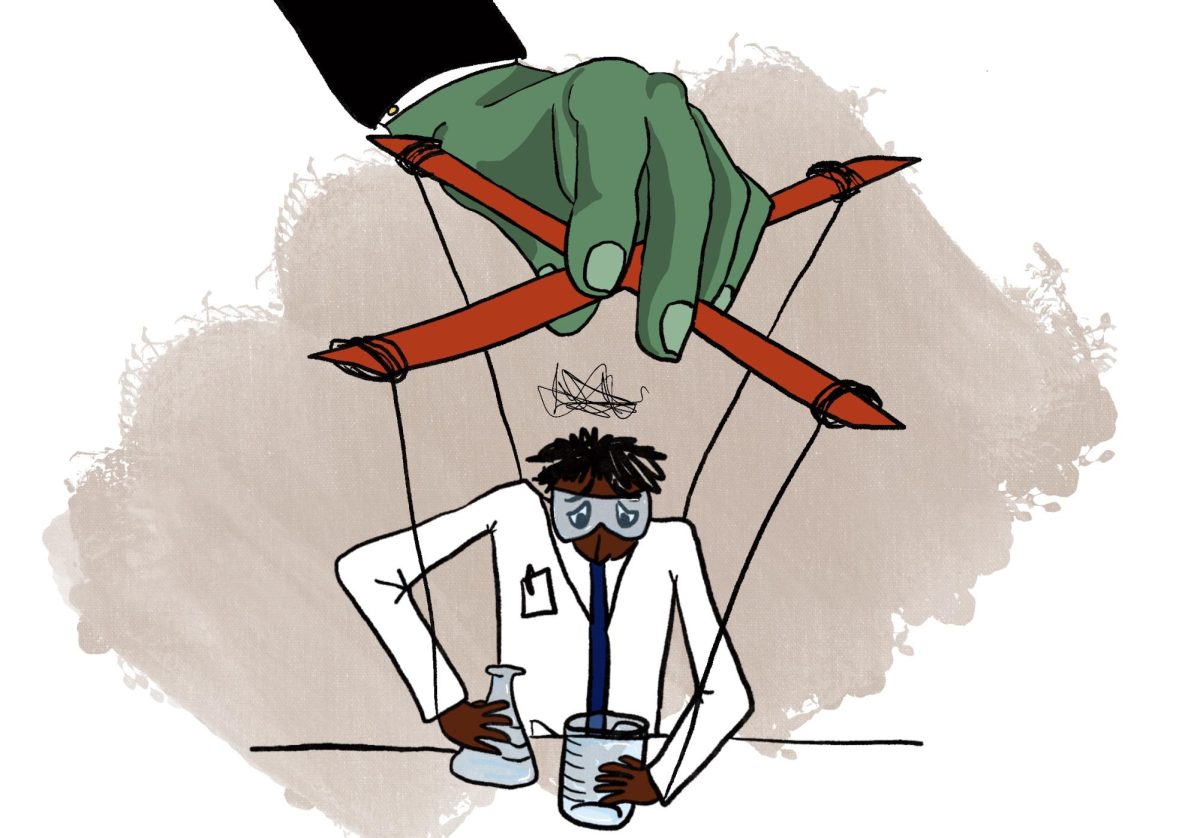For-profit science is a dangerous concept, riddled with inefficiency and perverse incentives.
The ability of corporations to keep secrets can cause all kinds of problems, such as slowing the adoption of new technologies and allowing misleading science to be published.
The Uniform Trade Secrets Act—which aims to protect firms against corporate espionage—decreases the rate at which technology moves between firms, according to a report from Research Policy.
Patents are supposed to give the public knowledge about cutting-edge technology. In return for publishing this information, firms receive protection from competition for a period of time.
When trade secrets are relied on instead, it becomes difficult for firms to advance upon pre-existing research. Science should be about reaching new heights by standing on the shoulders of others, a principle contrary to that of trade secrets.
Withholding knowledge about technologies creates duplicate research. Imagine if every electronics company had to rediscover the transistor or every biotech startup had to reinvent micropipettes.
This duplicate research is, in essence, wasted because of secret keeping. If the research was public knowledge, firms could focus on advancing the state of the art.
Problems like this can happen even within the ordinary patent system. Consider the case of Gilead, a pharmaceutical company that withheld an improved drug in order to continue profiting off of their older version, according to a July 22 New York Times article.
Gilead’s original drug formulation was a groundbreaking HIV medication developed in the early 2000s, according to the article. While the drug was effective, it caused serious bone and kidney problems. A newer formulation had side effects that could be safer for many patients.
The only problem is that Gilead withheld the newer drug until the patent for the old drug nearly expired, continuing to expose patients to easily preventable side effects. This is clearly not the outcome that is desired for the interests of public health, which should be the emphasis for a company like Gilead.
When the pharmaceutical industry causes undesirable outcomes, like preventable human suffering, it is the job of regulators to create rules that prevent them.
Regardless of the regulatory mechanism that creates a research market—patents or trade secrets—they result in inefficiencies and dangerous consequences.
Corporate funding can also allow the publishing of research that is scantly more than a press release in a lab coat.
Industry-funded research was one of the tools used by the tobacco industry to fight anti-smoking campaigns, according to a 2005 paper in Public Health Chronicles.
Tobacco companies would form “independent” research organizations that would manufacture data that disputed a link between smoking and lung cancer.
One research organization funded four million dollars worth of studies that were pitched directly to a council of tobacco industry executives. Two-thirds of these were about secondhand smoke, according to the same 2005 paper.
Throughout the 90s, the scientists that performed the studies testified in front of Congress about the effects of smoking, according to the paper.
Corporate research does often align with public interest, but the system is inefficient, and there is the potential for manipulation of scientifically uninformed consumers and policymakers.
It is important to remain vigilant against the poor uses of scientific resources caused by corporations.
Organizations like Consumer Reports and regulators like the FDA play an important role in keeping corporate interests in line, but like with tobacco companies or Gilead, they often are unable to keep problems from occurring.
Corporate oversight is needed to prevent foul play and improve the efficiency of the economy.
If select consumers and employees of companies formed some portion of corporate boards, it is probable that cases like Gilead’s or the tobacco companies’ would not have been able to effectively hide their strategy from the public.









